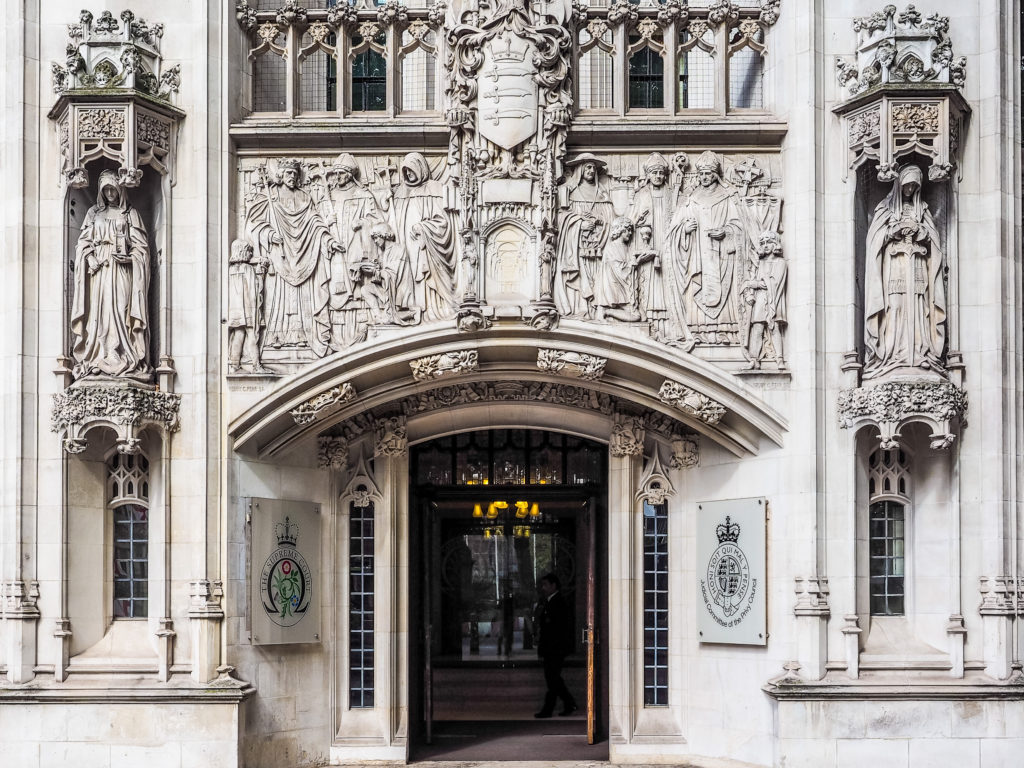
The Divisional Court handed down judgment on 20 January 2020, rejecting the first challenge to the continued application of the European Arrest Warrant (“EAW”) regime to cases commenced pre-Brexit. The challenge was made by way of applications for writs of habeas corpus, submitted on behalf of five requested persons who had been arrested pursuant to EAWs issued before the end of the transition period on 31 December 2020.
As a preliminary issue, the court considered the correct procedure for the bringing of such a challenge and, relying on the reasoning of Singh LJ in Jane v Westminster Magistrates’ Court [2019] EWHC 394 (Admin), directed that the applications should continue as applications for permission to apply for judicial review.
The substantive challenge
The applicants argued that when the UK ceased to be an EU Member State, Framework Decision 2002/584 JHA on the EAW was no longer capable of applying to the UK, absent an express agreement that the UK would continue to be treated as if it were a Member State. While such an agreement is contained in the UK-EU Withdrawal Agreement, the applicants submitted that it was time-limited to apply only during the transition period. The applicants argued that the Extradition Act 2003, insofar as it implemented the Framework Decision, must be read conformably with that decision and, accordingly, if the Framework Decision provides no basis for the surrender of requested persons because the UK is no longer an EU Member State, then neither can the 2003 Act. Finally, the applicants relied on the loss of a number of protective features of the Framework Decision, in particular the loss of specialty arrangements and the removal of the supervisory jurisdiction of the Court of Justice of the European Union.
The Court’s decision
Refusing permission to apply for judicial review, the Court concluded that the challenge in these cases was not properly arguable. The correct starting point for the legal analysis of the issues raised in this challenge is, as a matter of constitutional principle, domestic law, namely the Extradition Act 2003. Only in exceptional cases, where the domestic law is unclear would it be necessary to look at the underlying international instrument. Domestic law provides for what is to happen to those arrested pursuant to EAWs before the end of the transition period but not surrendered before that date. Amendments made to the 2003 Act by, inter alia, the Law Enforcement and Security (Amendment)(EU Exit) Regulations 2019 and the European Union (Future Relationship) Act 2020, to reflect the change in extradition procedure post-transition, expressly do not apply in a case where “a person has been arrested under a Part 1 warrant” during the transition period. When read alongside the provisions of the Withdrawal Agreement, it is clear that the intention was that the 2003 Act should continue to apply in its unamended form to cases of this kind. The Court considered that this alone would be sufficient to dispose of these applications but went on to address the other arguments presented at the hearing.
The Court held that the provisions of the Withdrawal Agreement provide a clear basis in international law for the sensible, post-transition operation of the Framework Decision in respect of the UK, in that the parties expressly agreed that the term “Member State” should be read as if it included the UK. Article 185 of the Withdrawal Agreement, which was overlooked at the hearing, but was later drawn to the Court’s attention, demonstrated conclusively that the applicants’ construction of that agreement as time-limited was wrong. Article 185 provides for the continued application, after the end of the transition period, of several Parts of the Withdrawal Agreement, including Article 62, which governs the continued operation of the Framework Decision in cases in which arrest took place before 31 December 2020.
Comment
An inevitable consequence of the sweeping changes Brexit has made to UK extradition arrangements, is that challenges would be brought by requested persons seeking to test the limits of, and make use of any weaknesses in, the new regime. Though unsuccessful, this challenge has provided a useful exploration of the complex legislative framework underpinning the new and transitional arrangements. It has also demonstrated the Court’s willingness to interpret the new provisions in light of Parliament’s clear intentions, to ensure a smooth transition as far as possible. While this challenge appears to have settled, at least for the time being, matters in respect of how the arrangements will work in cases of this type, it is unlikely that we will have long to wait before the next challenge identifies another potential fault line and the courts are once again required to delve into the intricacies of the new arrangements.
Tags: Brexit, European Arrest Warrant, Extradition agreement Categories: EU, United Kingdom



Recent Comments